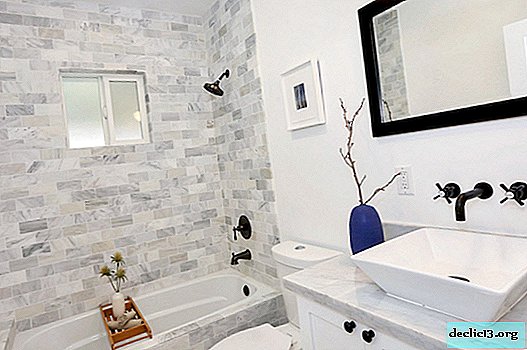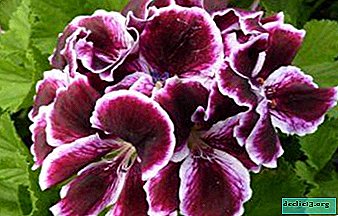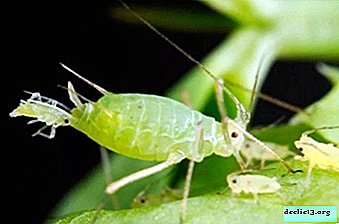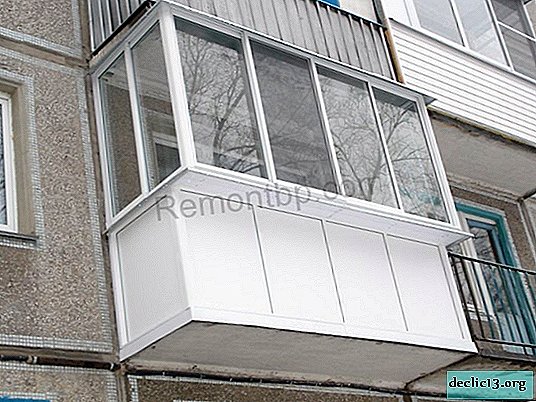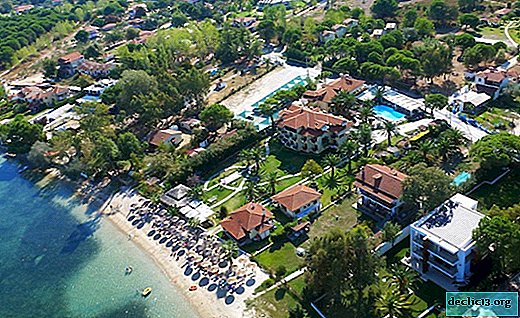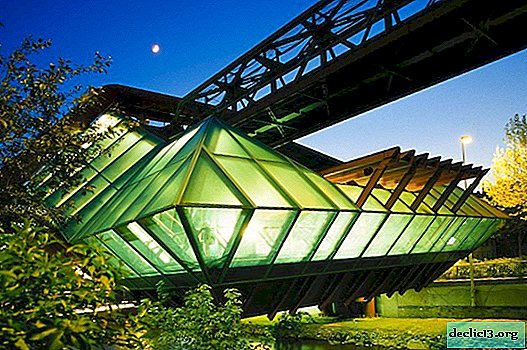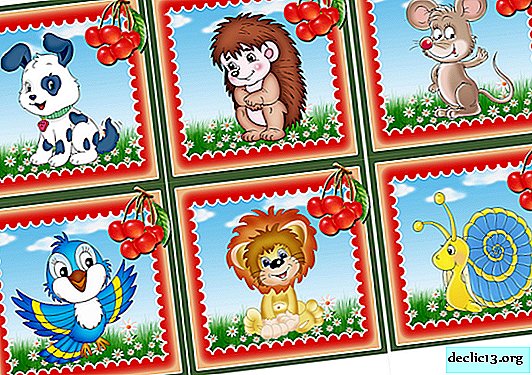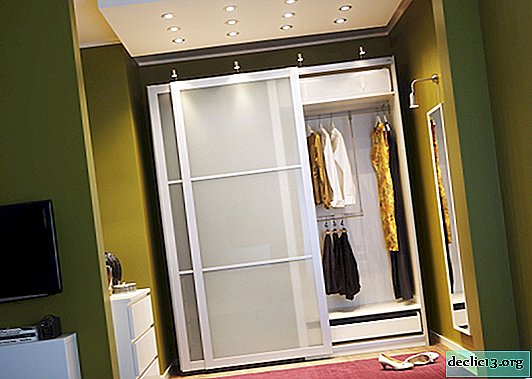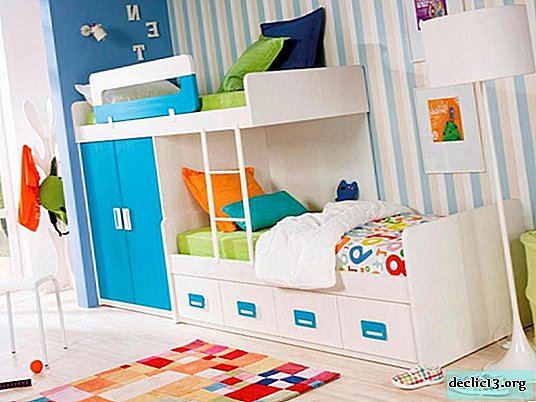Features of the development of children in the 3rd month of life, up to a year and up to 5 years

Having a baby is the happiest family event. The first months of the baby’s life are the most important period when a long and fascinating way of growing up to a conscious little man opens before the baby. He has a lot to learn about the world around him, so young parents must create all conditions for the proper development and acquisition of vital skills.
Differences in the development of boys and girls

From six months of age, each child can recognize a person's belonging to a certain gender. However, only from the age of two begins self-identification by gender in the course of communication with peers, by the principle of their behavior during games. The development of boys and girls differs according to some criteria.
| Skills | The boys | Girls |
|---|---|---|
| Motility | Boys are characterized by the rapid development of large motility: running, jumping, maintaining equilibrium. Physical activity is more aggressive and impulsive. | For girls - fine motor skills: writing, drawing, modeling. |
| Verbal development | Speech is developing compared to girls with some delay, the vocabulary is scarce. | Reading is a strong point, the ability to pay attention to non-verbal signs - voice, intonation. Therefore, girls are good "interlocutors", with the ability to express emotions and feelings already at an early stage of development. |
| Ability to walk on the potty | At the age of two years, boys often write to bed. | Learn to pot faster. |
| First steps | The tendency to increased mobility, "adventurism", determines the ability to take the first steps faster to quickly test your strength. | For young girls, a lag in the acquisition of walking skills by 2-3 months is characteristic, unlike boys. |
| Speech Skills Development | The craving for competition is more pronounced than that of girls, makes you engage in verbal debate. | Girls still succeed more in the development of speech, ahead of boys by about 5 months. |
| Craving for new discoveries | Inquisitive boys, in order to feel psychological comfort, are constantly looking for new discoveries, are happy to explore all the unknown, previously incomprehensible. | Girls prefer a more relaxed pastime, less outdoor games. They are much more interested in arranging their "nook" with arranging toys, sorting out their favorite things. |
From the moment of birth, we can talk about the lag in the development of boys from girls with a difference of 3-4 weeks. But by the beginning of adolescence, this gap is completely erased. Although young peers enter the fascinating stage of growing up earlier, nature has given the boys the opportunity to enjoy the delights of a carefree childhood for several years longer.
A set of skills and development of boys and girls up to a year for months
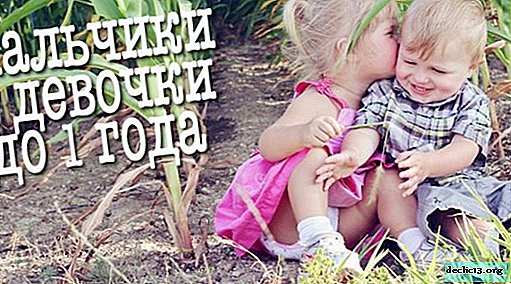
| Child age and period | Skills | Useful tips and tricks for parents |
|---|---|---|
| 1 month Adaptation | In the first month, the baby learns to be outside the maternal womb, therefore, spends up to 20 hours a day in a dream, the rest of the time it eats. By the end of the first month, he begins to pay attention to toys, and the first color that distinguishes is red. Also, the surrounding sounds begin to attract the baby, but newborn reflexes still persist:
In developed children, the ability to hold the head on their own is observed. | The main goal is to create conditions for increased comfort for the baby: the right temperature, personal contact - to hold on hands, talk, sing lullabies, play. |
| 2 months The first "revival" | The baby begins to spend more time in a wakeful state - up to 50 minutes. Visual and auditory abilities are improved - now he can discern objects located at a distance of 0.5 m, distinguish between the voices of parents. Also holds the head in an upright position, flips in the crib on its side. Infant reflexes fade away. The emotional background is expanding. | To help the child develop emotionally, you need to make your baby laugh as often as possible - this is how the first smile will appear. Talk with him, then he will begin to respond to words that are still incomprehensible with the first sounds: “aha”, “abu”, “aha”, “gugu”. |
| 3 months Continuation of the revival | Mental, physical, and emotional skills are noticeably developing.
| The child makes his first attempts to independently roll over and lift himself on the handles, so you should not leave him alone on the bed in order to avoid falling with injury. |
| 4 months Active revitalization |
| For this period of development, the child is characterized by a feeling of fear of losing his mother. It is at 4 months that you should pay as much attention and love as possible to the baby. |
| 5 months Physical activity |
| Parents should tell the baby as many poems as possible, describe in detail the plot of the pictures, contributing to the development of speech skills. You can start learning the first words: "mom", "dad", "woman." |
| 6 months Exploring the world |
| Since the child begins to crawl, you need to remove all unsafe objects from the reach. |
| Seven months Own body control |
| The active development of fine motor skills requires careful monitoring of what is in the baby’s hands, since small parts can easily get into the mouth, nose, and ears. To stimulate cognitive interest, it is necessary to describe surrounding things in detail, to correctly name body parts. |
| 8 months Perseverance |
| Already at this age, children can utter the first meaningful word, so you need to talk to them as often as possible, reinforcing the process with simple entertaining games - “cuckoo” or “ladushki”. |
| 9 months Agility and increased activity |
| Independent attempts of a child to climb into a chair or sofa should be made under the strict supervision of parents. When giving play with plasticine, you must ensure that he does not pull it into his mouth. |
| 10 months Agility and increased activity |
| Independence in all manifestations must be encouraged - children of this age adore praise, which serves as further motivation for learning new things. |
| 11 months First politeness |
| To consolidate positive habits in terms of polite communication, it is important to ask the child to say "hello", "bye", "thank you" to form a habit. |
| 12 months From infancy to childhood |
| If previously parents already tried to accustom the child to the potty, at the age of 12 months the baby can already begin to ask himself to "crawl out" of the diapers. |
What should be able to children under 5 years of age
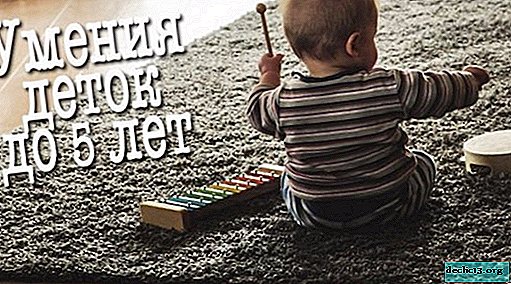
At the age from 0 to 5 years, the child lives the most important stages of development, when the formation of personal qualities, important skills takes place. In order for him to receive the correct primary education and to be able to behave politely, it is important to constantly engage with him - to play, develop physical culture, speech, fine motor skills, emotional sphere, logical thinking.
| Age group | Skills | |
|---|---|---|
| 1-2 years | Logical thinking | Play with cubes, fold towers, show research interest by analyzing objects. |
| Speech skills | Speak simple words, know the names of all family members. | |
| Social development | To be able to correctly name parts of the body, face. | |
| Household and household skills | To go to the toilet on the potty, get up and walk on your own, drink from a cup, understand and respond to instructions from parents, imitate other people's behavior. | |
| Educational Aids | Puzzles, Alphabet, Alphabet, cards, coloring, stencils, cubes. | |
| 2-3 years | Logical thinking | The first acquaintance with arithmetic, perform 2-3 sequential actions, show a craving for drawing, designing. |
| Speech skills | Pronounce phrases of 4-5 words, be aware of the instructions of adults, know the simplest children's songs, poems. | |
| Social development | Distinguish between vehicles. | |
| Household and household skills | Descend and climb stairs independently, dress, undress, use a pot, move backwards, keep balance on the crossbar, be able to handle scissors, and be trained in hand hygiene. | |
| Educational Aids | Cards with numbers and geometric shapes, association games, collections of poems, nursery rhymes, tongue twisters, drawing cards: animals, fruits, vegetables, vehicles, applications. | |
| 3-4 years | Logical thinking | To be able to count to three, show numbers on fingers, operate with the concepts of "many, few, high, low", etc., distinguish between a circle, a square, a triangle, have the ability to compare objects in shape, color, size, make pairs of things by characteristic, find similarities and differences in objects, exclude unnecessary things, memorize a chain of pictures and words, be able to concentrate on working on a task. |
| Speech skills | Perceive and describe images, formulate sentences of 5-6 words, distinguish features of objects, be able to form groups of them. | |
| Social development | Distinguish between pets, birds, fish, insects, trees, flowers, berries. Have a basic understanding of the materials from which the items are made. Distinguish between time of day, natural phenomena. | |
| Household and household skills | Dress yourself, undress, use stationery for creativity, draw primitive images in the form of dots, lines, circles, paint shapes, know the rules of hygiene. | |
| Educational Aids | Account cards, video tutorials on the account, double puzzles, math workbooks, dice games, copybooks, music games, the first encyclopedias about animals and insects, books about the seasons, a set of children's dishes, plasticine, assemble yourself " | |
| 4-5 years old | Logical thinking | To distinguish between sides and directions, to expand knowledge of geometric shapes, to correlate objects with numbers when calculating, to be able to write numbers, to be able to stack objects according to the principle of a constructor, to formulate answers to questions: “Why?”, “Is it possible?”, “For what?” , select the opposite in meaning words. |
| Speech skills | Build sentences of 5-8 words, a total vocabulary of at least 1000 words, distinguish parts of the bodies of people and animals, be able to name an object by signs, understand the meaning of prepositions, maintain a dialogue, know the first information about yourself: name, age, place of residence, use past tense in speech. | |
| Social development | To distinguish between fruits and vegetables, to know when they ripen, where to grow, to know about the methods of movement of insects, to be able to correctly name cubs of animals, to know the main signs of each season. | |
| Household and household skills | Be able to tie shoelaces, fasten buttons and zippers, draw on-the-go pencils, colorize images, observing the borders of the picture. At this age, you can first introduce a child to a foreign language alphabet. | |
| Educational Aids | Coloring with connecting dots, copybooks with numbers, triple puzzles, math workbooks, puzzles, children's developmental magazines, reading aids, reading books, didactic games with color letters and pictures, the encyclopedia "The World around", the game "Tic Tac Toe", books for children on anatomy, cards with a foreign language alphabet. | |
What Dr. Komarovsky says about child development
A world-famous children's doctor, a specialist in the study of health issues and the formation of family relationships, is Dr. Komarovsky. A lot of parents listen to his opinion, he writes books, speaks on television, and even leads his YouTube channel. Studying the process of growth and development of the child, Evgeny Olegovich put forward several main points.
- The manner of behavior is closely related to well-being - there is no causeless child crying or screaming. However, the habit of solving problems associated with any discomfort can turn into a addiction.
- Comfortable conditions created for the child during the period of 2-3 months of his life will affect the further development of his ability to adapt to the environment on his own.
- Parental attention is a much more powerful factor in shaping health than trips to pediatricians.
- In order for a child to be truly happy, inquisitive, active, his education should be carried out using educational books and games, because didactic children's materials were compiled with the aim of hobbies, "tearing" out of everyday realities.
- The issue of re-education, retraining is an almost impossible task. Begin to form positive qualities and behavior that is correct from the very beginning of the baby’s understanding of what is happening around. And the use of extreme measures in the educational process - strict punishments - is better to completely eliminate. Interestingly, it is much better for fathers to engage in raising a child than for mothers.
Should I worry if there are deviations from the norm?
The discovery of the surrounding world, so bright and versatile, for the baby is a source of enthusiastic, amazing impressions. Many parents blame themselves if they notice that the child is somewhat behind in development from their peers. However, it has long been proven that such circumstances in rare cases arise due to the influence of hereditary factors or errors in child care.
The complex process of the formation of children's skills and abilities is individual for each growing person. Even with average age-specific developmental standards for a certain stage of growing up, the formation of absolutely healthy children may not correspond to these "calendar calculations".
Development of social skills and emotional background
Skills of social communication, expression of feelings and emotions largely depend on the child’s temperament - calm or active, but living conditions are a more powerful factor in their formation. Bad qualities, bad habits or addictions are not inherited. An unfavorable situation can be corrected by a pediatrician, who will be able to identify and fix the problem in time. The intervention of a specialist is especially necessary in cases of impaired motor and neuropsychological development.
From what age should children be recorded in sections and circles

Indispensable help in developing the child’s abilities or talents can be provided by the parents themselves by enrolling in a creative club or in a sports section. Childhood is a suitable period of life for finding new hobbies when energy pours over the edge.
Preschoolers are characterized by the manifestation of creative ideas, they are not shy about reciting poems of their own composition, singing songs, dancing carefree. They still do not know the framework that would restrict their impulses, so do not blame the child’s desire to realize themselves creatively. It is important to encourage any undertakings, even if the first drawings will be “kalyak-malyaki”, and additional classes at home, conducted, of course, at will, only spur interest in certain activities.
The ideal age for going to the training sections is 5-6 years. During these years, children begin to realize the difference between "real" learning and spontaneity.In many sports clubs children are willingly taken even at the age of 2-3 years, and there is no need to wait a while with the decision to send the child to professional sports, this will positively affect his general physical development.
Up to 5 years, visiting the pool is an entertaining event, and at 7-8 you can already think about "preparing for the Olympics."
Children are able to successfully master foreign languages from the age when they are just beginning to learn to speak. A receptive attitude to everything new extends to any speech.
Video plotDevelopment in children occurs in an individual way, with its own pace, achievements, mistakes. There is no guarantee that any delays in the formation of skills in the baby, unlike successful peers, are abnormalities. However, the advice of an experienced pediatrician or neurologist will never hurt. Doctors will be able to identify and fix possible problems on time.

